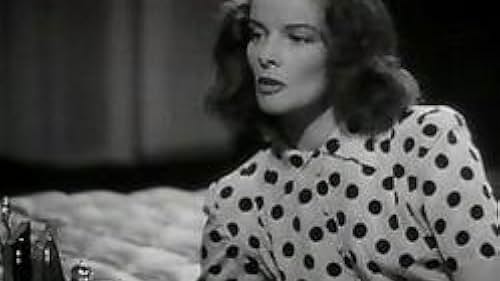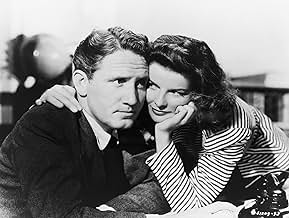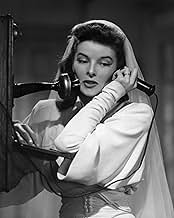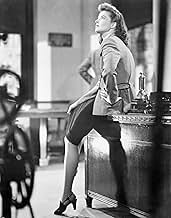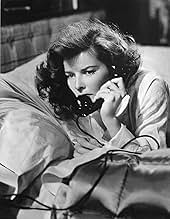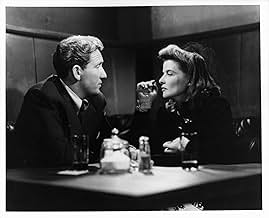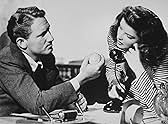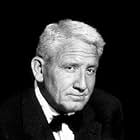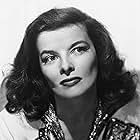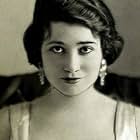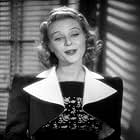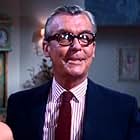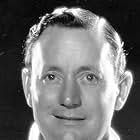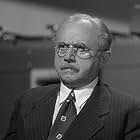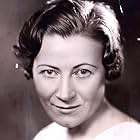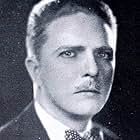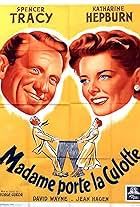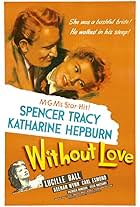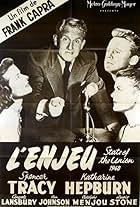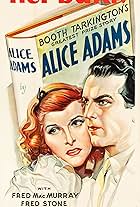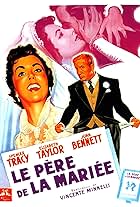Ajouter une intrigue dans votre langueSportswriter Sam Craig and columnist Tess Harding, with the same New York newspaper, overcome their initial antagonism, fall in love and get married, only to find their relationship strained... Tout lireSportswriter Sam Craig and columnist Tess Harding, with the same New York newspaper, overcome their initial antagonism, fall in love and get married, only to find their relationship strained when he comes to resent her hectic lifestyle.Sportswriter Sam Craig and columnist Tess Harding, with the same New York newspaper, overcome their initial antagonism, fall in love and get married, only to find their relationship strained when he comes to resent her hectic lifestyle.
- Récompensé par 1 Oscar
- 2 victoires et 2 nominations au total
- Dr. Lubbeck
- (as Ludwig Stossel)
- Cab Driver
- (non crédité)
- Stage Doorman
- (non crédité)
- Phone Girl
- (non crédité)
- Baseball Fan
- (non crédité)
Histoire
Le saviez-vous
- AnecdotesKatharine Hepburn refused to reveal who wrote the screen play to Louis B. Mayer until after he bought the project from Hepburn. Hepburn was afraid that Mayer would low-ball the two authors (Michael Kanin and Ring Lardner Jr.) because, at the time, they were both relatively unknown.
- GaffesIn the kitchen, Tess uses a vacuum coffee maker (Cona). However, if she had put the coffee in the bottom of the coffee maker and the water in the top, as shown, it wouldn't have made coffee at all.
- Citations
Tess Harding: [In the stands at the ballpark, observing the large crowd in attendance] Are all these people unemployed?
Sam Craig: No, they're all attending their grandmother's funeral.
- Versions alternativesThere is an Italian edition of this film on DVD, distributed by DNA Srl: "LA DONNA DEL GIORNO (1942) + INCANTESIMO (1938)" (2 Films on a single DVD, with "Woman of the Year" in double version 1.33:1 and 1.78:1), re-edited with the contribution of film historian Riccardo Cusin. This version is also available for streaming on some platforms.
- ConnexionsFeatured in George Stevens: A Filmmaker's Journey (1984)
- Bandes originalesBridal Chorus (Here Comes the Bride)
(1850) (uncredited)
from "Lohengrin"
Written by Richard Wagner
Played on an organ at the wedding
This isn't to say that the film is without flaws. Far from it. The writing is clipped and most of the words on their own have little spark. (It takes Spencer Tracy's glowering eyes, or Katharine Hepburn's radiant smile, to add life to those words.) Even the relationship between Sam and Tess isn't set up in the most fluid of ways, leap-frogging from moment to moment, from scene to scene, without quite making the necessary connections--if you believe in Sam and Tess together (and I do), it's only because you can truly believe in Tracy and Hepburn together. The film occasionally feels like a play cobbled together from various scenes, until it hits its stride midway through the film (after Sam and Tess get married).
Script aside, the plot is interesting, and certainly quite radical for its time. However, the ending (a hilarious set-piece of comedy though it might be) leaves things largely unresolved. We have a wonderful, strong female character in Tess Harding--this is clear enough in the first half of the film. But her strength, her forceful personality and go-getting attitude, become her weakness in the second half, so much so that she becomes almost a caricature of the original Tess Harding. Some of the things she does (her 'humanitarian' wholesale adoption of Chris, for example; her rudeness and blithe ignorance of Sam's worth) are truly reprehensible, and the point the writers are making is clear--a female who tries too hard to be a male loses her feminity, and cannot ever really be fulfilled. In this sense, the gender politics, as other commenters have pointed out, is 'deplorable'.
And yet there is a grain of truth in it; if one *can* be brought to believe that Tess could really treat Chris and Sam in the way she does, one can't help but applaud Sam's decision to leave. The role reversal is almost complete--Sam himself comments on the fact that she 'makes love' to him to smooth over their quarrels. She charges on her own merry way without asking him about his life, his opinion, or anything that remotely matters to him. Their union was neither perfect, nor a marriage, as he justifiably charges.
The uneasy tension between the admirable and the deplorable Tess Hardings comes at the end: you most certainly get the impression that the film itself didn't quite know whether or not to affirm the Tess character. In fact, by all accounts (even Hepburn's own), the film originally ended with an unqualified affirmation of Tess's character--promising to be more involved in her husband's life, Tess is depicted at a baseball game, cheering alongside Sam, getting louder and louder and rising higher in her seat above him. It was both an affirmation of Tess the character, and a lingering question mark about the Harding-Craig reunion.
Test audiences didn't like it. (Apparently, it was the *women* who felt threatened by the character Hepburn portrayed on screen. She was too strong, too beautiful, too *everything* all at once.)
What transpired in the end, then, was a re-shot ending that muddied the moral of the film in suggesting that women could not really be fulfilled without their men. Sam wants her to be Tess Harding Craig; she wants to be Mrs. Craig; she wants to change; he thinks (and probably knows) she can't. The logical ending would have seen Tess, cast as she had been in the traditional masculine role, wooing Sam back, only to cast doubt over whether her atypical (for the time) strength as a female would unequivocally threaten the typical male figure as embodied in Tracy's character. The original ending would have better borne out the logic of the film--a valuable DVD extra if ever there was one. You can perhaps applaud the spirit of the film, without accepting the fact that it seems to let that spirit fade away in the end.
So what is there of worth in WOMAN OF THE YEAR, with its original ending gone, and its revolutionary potential muted by a slapstick scene in a kitchen with exploding waffles, too much coffee, and a woman who just can't seem to figure out how to separate eggs? Well, the answer is simple, and it's already been given. This is a movie to watch, and to watch *again*, because it is the first cinematic pairing of Spencer Tracy and Katharine Hepburn. For a couple of hours, you're allowed to watch these two great, mythical actors playing two people in love... while falling in love themselves. That is most certainly a rare privilege, if ever there was one.
Meilleurs choix
- How long is Woman of the Year?Alimenté par Alexa
Détails
- Durée1 heure 54 minutes
- Couleur
- Rapport de forme
- 1.37 : 1
Contribuer à cette page



